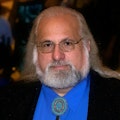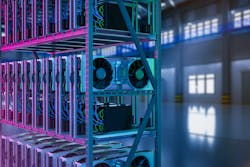Intel Revamps Its AI Approach with New Software, New Hardware, and New Leadership
The new year has brought a flock of announcements from Intel, all with a common theme and focus around improving their position in AI and data center marketplace.
It’s no surprise that there was a lot of interest from the industry overall, after Intel sold off their dedicated data center solutions group last year.
But the spate of announcements over the last 10 days, including new leadership in the Data Center and AI Group (DCAI), highlights Intel’s commitment to regaining its prominence in the tech world.
Intel Spins Out GenAI Software Company with Help from DigitalBridge
The most prominent of the announcements is software company Articul8, a generative AI spin-off from Intel in partnership with global investment firm DigitalBridge, and a few smaller partner investors.
Intel is moving Arun Subramaniyan, former vice president and general manager in the company's Data Center and AI Group, to be CEO of the new business.
Intel CEO Pat Gelsinger had this to say about the new venture:
“With its deep AI and HPC domain knowledge and enterprise-grade GenAI deployments, Articul8 is well positioned to deliver tangible business outcomes for Intel and our broader ecosystem of customers and partners. As Intel accelerates AI everywhere, we look forward to our continued collaboration with Articul8.”
It appears that the Articul8 approach will be to build a full-stack generative AI platform that is tightly integrated with Intel hardware and software to offer to vertical markets who want to run the AI tool within their own perimeter.
The move highlights how DigitalBridge has broadened its investment platform. As DigitalBridge CEO Marc Ganzi pointed out:
“Articul8 has built a scalable and easy-to-deploy GenAI software platform that is already enabling enterprises to unlock value from their proprietary data. We see GenAI as a pivotal force driving digital infrastructure, and we are pleased to collaborate with Intel to support Articul8’s growth” as he commented on the Digital Bridge investment."
If tight integration with the stream of AI hardware appearing from Intel is successful, then Articul8 may be successful in competing with generative AI heavyweights such as Open AI and Google, and drive the sales of Intel AI hardware, as it faces a tough uphill battle with Nvidia.
The trick will be whether Articul8 is able to build a compelling business model to draw companies away from their more established counterparts.
Intel Gaudi 3 Chips Away at GenAI
In terms of new hardware that can support the Articul8 business, three weeks ago Intel promised that the next generation of its Gaudi generative AI chips, Gaudi 3, will make their appearance in 2024.
Via this move Intel hopes, as with recent announcements of next-generation chips from competitor AMD, to be able to make inroads into NVidia’s market share dominance for AI hardware.
And like AMD, Intel is integrating AI capabilities from the desktop PC level on up, with the same date’s announcement of the latest Meteor Laker CPUs, adding AI capabilities that will allow common, local AI tasks to be offloaded from the primary CPU functions.
This will make tasks such a video acceleration, that can often make use of dedicated hardware, run more smoothly on Intel CPUs, while allowing other tasks on the system to be less impacted by even simple video requirements, such as virtual meeting backgrounds.
HPC Insider Hotard Takes Hold of Intel's Data Center and AI Group
With the clear awareness of the importance of AI and HPC to the future of their business, Intel hired Hewlett-Packard Enterprise’s Justin Hotard, where he led the HPE High Performance Computing business, which showed a market increase of over 20% year over year for HPE’s last reported quarter.
Hotard, who will start his new position in February, will be executive vice president and general manager of the company's Data Center and AI group, reporting directly to CEO Pat Geisinger.
Former DCAI group leader Sandra Rivera became chief executive officer of the Programmable Solutions Group, which Intel spun off as a standalone business to focus on the FPGA business at the start of the year.
Bringing in an outsider who was responsible for selling Intel’s HPC hardware to the business community sounds like a strong play for Intel, as the clear understanding of customer needs, as well as how to address such, can only make Intel a more formidable player in the space.
At the company's “AI Everywhere” event in New York City on Dec. 14, 2023, Intel, keynoted by CEO Patrick P. Gelsinger and other executives, introduced a portfolio of AI products, including the Intel Core Ultra mobile processors for PCs, and the 5th Gen Intel Xeon processors for data centers.
About the Author


